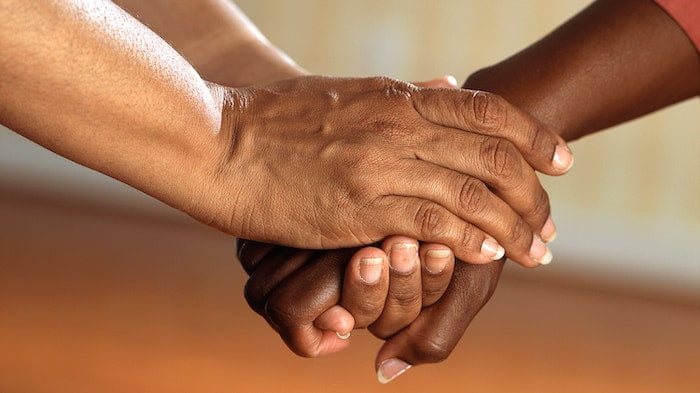- Home
- Drama Therapy in Addiction Treatment
Drama Therapy in Addiction Treatment
Therapy has come a long way in the past few decades.
There are now many different kinds of support and therapeutic tools available, all tailored to help us manage difficult feelings, thoughts and behaviours in different ways.
One of these forms of support is drama therapy, a mode of support that is becoming increasingly popular in addiction treatment programmes across the world.
This page will give you an insight into what drama therapy is, how it works, and what engaging with a drama therapy program with Rehab Recovery can offer you to kick-start your journey to sobriety.
Why is Drama Therapy Needed?

Drama therapy is a kind of therapeutic intervention that aims to help people to work with and communicate their feelings in different ways.
Usually, when we think of therapy or rehab, we might think that getting better means that we need to talk deeply to a therapist on a one-on-one basis to get to the bottom of the thing that is bothering us.
For many of us, though, the idea of sitting and talking can be overwhelming.
You might find that in past experiences of therapy, you were faced with a lot of different questions, such as:
- How do I start?
- How do I decide what to talk about, and when?
- How am I supposed to put such complicated feelings into words?
- What if I can’t explain how I feel, or what is happening?
All of these worries are valid and are concerns frequently raised by people beginning individual therapy, who are unsure how to navigate the therapist-client relationship.
This is where expressive therapies such as drama and other creative therapies (such as art therapy, adventure therapy and music therapy) can come in.
What is Drama Therapy?

Drama therapy techniques can be used as a creative method to work around some of these worries and concerns that you might feel when beginning more traditional styles of support.
Drama therapy is a therapeutic approach designed to help people think about and explore different difficult issues from different angles.
This kind of support is provided by specialist drama therapists, individuals who have both clinical and artistic backgrounds and who know how to use drama and movement therapy to help people build their communication skills and combat negative feelings in a nuanced way.
It can be very hard to talk about our real lives, especially when we may have experienced something quite difficult and upsetting.
Unfortunately, lots of people in recovery have experienced forms of trauma – research has suggested that adults who have experienced sexual abuse or domestic abuse are between 6 and 11 times more likely to struggle with addiction later on in life.
The goal of this type of therapy is to provide individuals with a safe environment through which to start opening up a little about these personal issues in order to help ourselves heal and improve our overall mental health.
One of the easiest ways to do this is through different dramatic techniques.
Drama is acting. It lets us ‘try on’ different types of roles.
This creative process of acting can offer us a very helpful space to reflect on our own, real situations through fictional situations.
It means it is an effective tool to help us think through how we might react in different situations in a secure and safe environment where we will not be judged.
Therefore, drama therapy can have a very significant impact on the development of social skills, self-acceptance, confidence, and overall personal growth.
Who Can Access Drama Therapy?

Drama therapy is available to people in many different circumstances.
Typically, drama therapists practice in group settings, such as hospitals, schools, prisons, rehab centres and the wider community.
There is no rule that suggests that only certain kinds of people can access drama therapy, however, there are certain circumstances where individuals with certain conditions may particularly benefit from this therapy, including:
- Anxiety
- Autism spectrum condition
- Bipolar disorder
- Borderline personality disorder
- Depression
- Eating disorders
- Post-traumatic stress disorder (PTSD)
- Individuals struggling with addiction
- individuals struggling with grief or loss
What are the Different Kinds of Drama Therapy?

Drama therapy can take many different forms.
Usually, drama therapy will take place in a group setting.
Sessions will tend to begin with a warm-up activity.
This is to help people get settled in and feel more confident and engaged with the session.
Throughout your sessions, your drama therapist will be available to speak with you if you are struggling with a particularly difficult task, or if an exercise has caused you to have some distressing thoughts or feelings.
The most important thing to remember is that you will not be required to do anything that will make you unsafe, and you will be supported throughout the process.
Common activities in a drama therapy setting include:
- Roleplay Therapy
- Puppet Therapy
- Improvisation
1. Roleplay Therapy
During roleplay therapy, you may be asked to act in a certain persona (or a type of role). This may be a role of your choice, or it may be suggested by your therapist.
You may then be asked to act out a social situation as though you are in that role.
These could be familiar situations – for example, you may use a technique known as role reversal, and act as a family member supporting someone who is struggling with difficult thoughts and feelings.
Or you may play a role that feels a little more abstract, such as someone who has a particular job or experiences that you may not.
The goal of role play is to help us to understand the different ways that interpersonal relationships work.
It can help us to think about the ways that we connect to people around us and the ways that we may talk to or act with different people in different circumstances.
You might talk to your family member, a friend or a colleague in different ways.
Drama therapy helps us to understand that all of these different sides of ourselves are kinds of roles, identifying the importance that these roles can have in helping us to maintain safe and healthy relationships.
2. Puppet Therapy
Puppet therapy is quite similar to role-play; however, it involves the use of puppets or figures as props.
Using a puppet can be especially helpful for people struggling with anxiety, as it means that you can focus your attention on the puppet and therefore feel a bit more comfortable about acting with others.
You might be asked to select a puppet from a group provided by your therapist that you may feel the most connected or drawn to.
You may also be asked to make your own puppet that can represent how you are feeling.
Puppets can help us to show the different emotions we are feeling without fear of being judged and can often help build trust and levels of comfort in the patient-therapist relationship as well as in peer groups.
3. Improvisation
Improvisation refers to a style of performance that is spontaneous.
This means that with improvisation, there is no script or practice run.
This may seem quite daunting, but improvisation has been found to be especially helpful in drama therapy as it means that people can tap directly into what they are thinking and feeling and say whatever they feel like in the moment.
This can be helpful to give therapists a bit of an insight into your current feelings and allow them to get a picture of any things you may currently be struggling with, which you will then be able to discuss with them later.
What are the Key Benefits of Drama Therapy?

There are many different ways that drama therapy can help us.
The key benefits of drama therapy are:
- Breaking down communication barriers
- Building social skills
- Confidence building
1. Breaking Down Communication Barriers
Drama therapy can be a very helpful tool for different people as it can eliminate the need for traditional modes of communication, such as talking from person to person.
This is helpful as it can make it easier for people who struggle with anxiety, but it can also help in situations where there is a language barrier – for example, if the clinician and the patient do not share the same language, or if the patient does not or is not able to speak.
Drama therapy looks not just at what people say, but at other nonverbal cues such as movements we make with our bodies.
This means that in drama therapy, communication barriers can be reduced, meaning patients are able to display their feelings clearly to a trained professional.
Having this space to practice expressing ourselves is very important, and can also allow people to begin to disclose difficult experiences that they may not have been able to communicate in the past.
2. Social Aspects
Another key role of drama therapy is its ability to help increase confidence.
Low self-confidence is not uncommon.
When we have dips in our mental health, we often don’t feel very good about ourselves, which can sometimes lead to social withdrawal.
Social withdrawal has been associated with higher levels of anxiety and depression, which increased the risk of harmful behaviours such as excessive drinking or drug use.
This becomes a vicious cycle – we become more withdrawn, so we may rely on substances more.
And then the use of substances means that we may experience conflict with friends and family, or start to distance ourselves from them, meaning that the period of withdrawal increases.
Drama therapy is delivered in groups, meaning that you will be interacting with people who are currently experiencing similar things to you.
This can help with feelings of connection – knowing that we are not alone can be a very helpful and powerful tool that can provide us with the energy and urge to keep going.
Sharing difficult experiences is one way to connect with others – it is not uncommon for people to stay in touch with friends they meet in therapy groups.
Even if you do not stay in touch with peers, the social skills you practice in drama therapy can be helpful in beginning and maintaining new relationships with others going forward.
What Other Kinds of Therapy Work Well With Drama Therapy?

At Rehab Recovery, we believe that a treatment plan that can offer you support in as many different ways as possible gives you the strongest chance of moving forward on your recovery journey.
For this reason, we offer many different types of therapy that can work hand in hand with drama therapy to give you the most thorough and well-rounded treatment package possible.
Some of the other types of therapeutic support offered at rehab centres include:
- Alcohol addiction counselling
- Cognitive behavioural therapy
- Dialectical behavioural therapy
- Art therapy
- Music therapy
- Equine therapy
- Family therapy
- Intensive outpatient treatments
- Intervention
- Self-help groups
Contact Us Today

Addiction can feel like a long, tricky journey.
However, it is not one that you need to travel alone.
At Rehab Recovery we know that addiction is not a choice and that everyone struggling with substances deserves a helping hand to get back on the right track to improved wellbeing.
If you are ready to access support for addiction or believe that a loved one would benefit from beginning formal support, we are more than happy to help you beat addiction once and for all.
We are a confidential service, and all of our contact with you is designed to help give you peace of mind.
You can contact our team on 0800 088 66 86 to seek advice and learn more about the kinds of services we offer.


